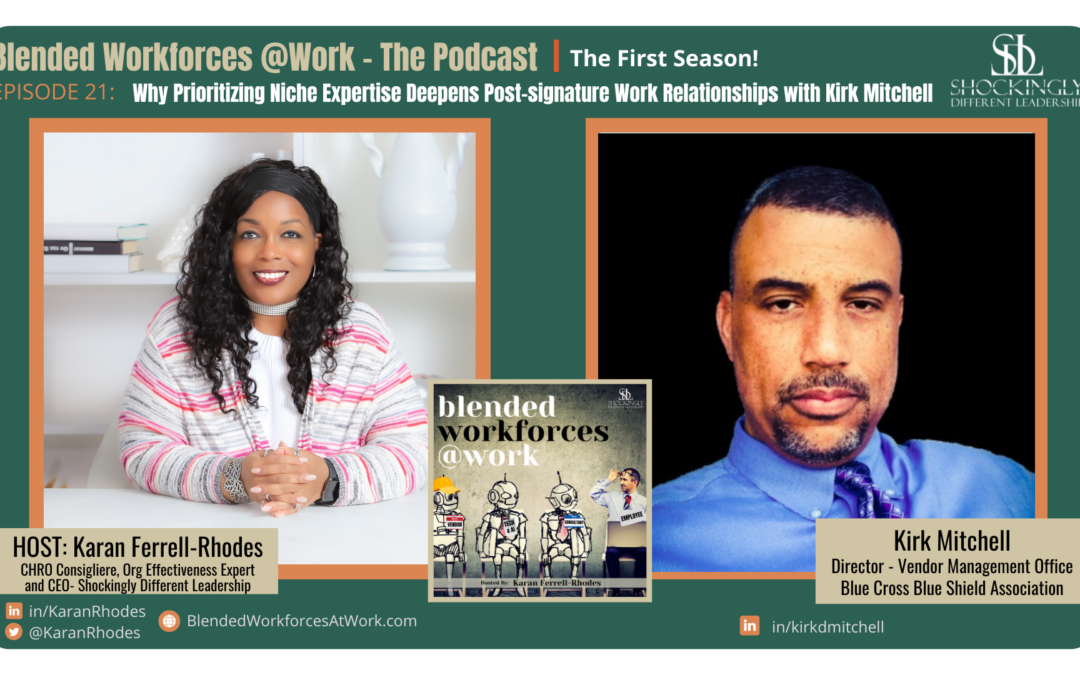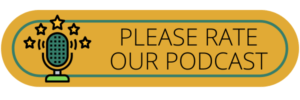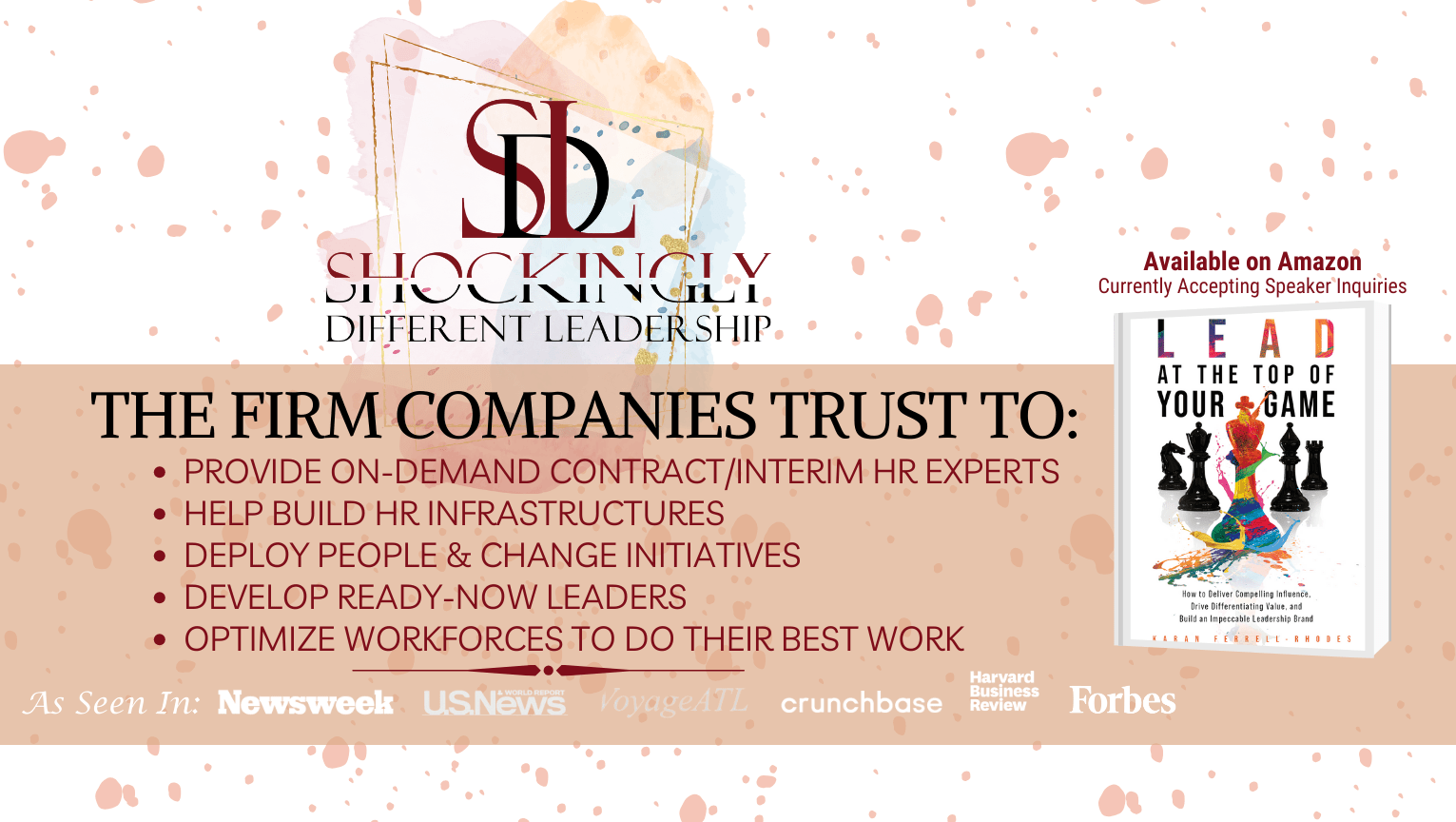IN THIS EPISODE, KARAN FERRELL-RHODES INTERVIEWS KIRK MITCHELL.
Prioritizing niche expertise transforms post-signature work relationships by fostering deeper trust and alignment. When vendors excel in a specialized area, they bring unparalleled value, making them indispensable partners. This focus sharpens collaboration, enhances communication, and ensures that both parties are committed to a shared vision, driving long-term success.
Kirk Mitchell is the Director of the Vendor Management Office at Blue Cross Blue Shield Association. He leads the development of supply base operating capacity, impacting healthcare operations for over 5 million Americans. Kirk excels in creating and managing complex IT relationships, contracts, and sourcing projects, delivering valuable solutions for BCBS Plans.
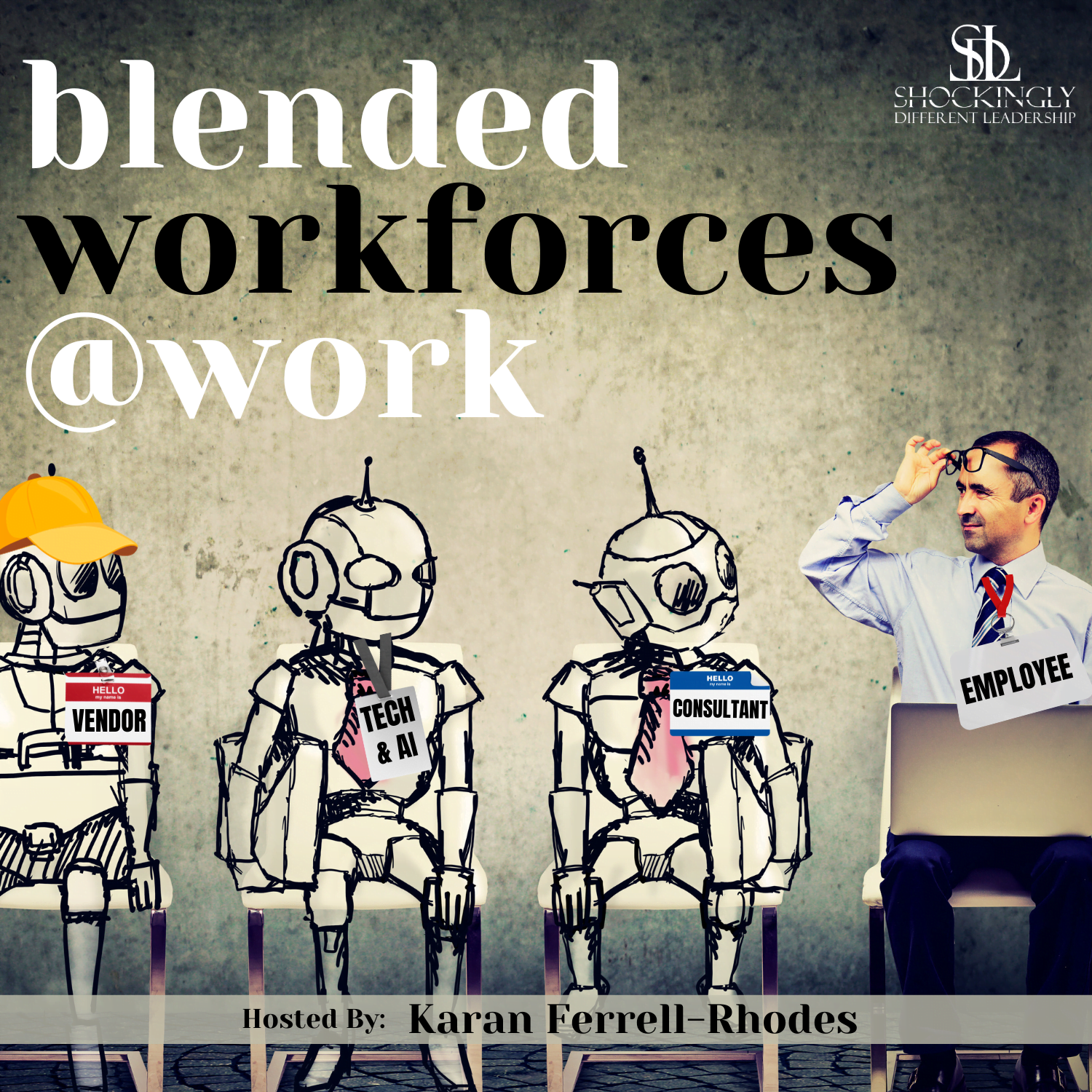
Posted by
SDL Media Team
Rather view our video podcast?

WHAT TO LISTEN FOR:
- What are the key responsibilities in managing complex contracts?
- How can diverse teams collaborate effectively in contract management?
- What benefits come from partnering with smaller vendors?
- How can small businesses stay relevant with larger clients?
- What are the trade-offs between offshoring and onshoring?
- How does legal design help manage complex contracts?
- Why are stakeholder skills crucial for leadership?
“Don’t think as a small firm that you are less valuable than a large firm.”
FEATURED TIMESTAMPS:
[02:37] A Peek into Kirk’s Life Outside Work
[03:49] Core Responsibilities of Kirk’s Job
[06:40] Collaboration and Coordination in Contract Management
[07:33] Collaborating with Vendors
[09:07] Vendor Sourcing and Integration
[11:23] The Benefits of Partnering with Smaller Vendors
[14:45] Strategies for Small Businesses and Self-Assessment
[18:57] The Trade-Offs of Offshoring vs. Onshoring
[23:00] Signature Segment: Kirk’s entry into the LATTOYG Playbook: Enhancing Managerial Support for Building Effective Blended Workforce Teams
[28:07] Signature Segment: Kirk’s LATTOYG Tactic of Choice: Leading with Stakeholder Savvy
[30:07] Learn more about Kirk

ABOUT KIRK MITCHELL:
Kirk D. Mitchell is an accomplished professional with extensive experience in vendor management, strategic partnerships, and business optimization. With a Juris Doctorate and a background spanning telecommunications, finance, energy, and healthcare industries, Kirk has consistently delivered measurable impacts on operating metrics and financial performance. His expertise includes leading large-scale transitions, implementing innovation, and achieving total deal value.
As the current Director of the VMO at BCBSA, Kirk leads the development of the supply base operating capacity to drive impacts across the enterprise, directly impacting healthcare operations for over 5 million Americans.
LINKS FOR KIRK:
-
LinkedIn: linkedin.com/in/kirkdmitchell
ADDITIONAL RESOURCES FOR YOU:


Episode Sponsor
SDL is the go-to firm companies trust when needing to:
- supplement their in-house HR teams with contract or interim HR experts
- implement leadership development programs that demonstrate an immediate ROI and impact on the business

Episode 21 | Why Prioritizing Niche Expertise Deepens Post-signature Work Relationships with Kirk Mitchell
Kirk Mitchell 00:01
When they’re large and complex, when multiple years and have millions of dollars flowing through them, often across multiple business lines or public hearings, they they tend to break, and they tend to break a lot, and so you constantly are fixing things. The relationship, or, you know, the way the business and client work together, because the contract will never capture everything, they’re inherently, not perfect. And then it’s time for a consult.
Karan Rhodes 00:01
Blended workforces are one of the hottest talent strategies today, where employers are using a mix of traditional employees with external resources like independent contractors, coaches, consultants, vendors, and technology solutions, all in order to enhance competitiveness, ensure cost flexibility, and expedite business goals. But how are the successful companies infusing blended workforces into their business strategy? And what are the critical success factors and pitfalls to avoid during implementation? And on the flip side, what does it really take for suppliers to improve their chances of finding and landing contract opportunities? The devil is in the details, my friends! I’m your host, Karan Ferrell Rhodes, and it’s time to get smarter about Blended Workforces at Work!Hello, my superstars. This is Karen, and welcome to another episode of the blended workforces at work podcast. Boy, do we have a treat in store for you today. I am so honored to have on today’s show Kirk Mitchell, who is the director of the vendor management office at the Blue Cross Blue Shield Association and at the Blue Cross Blue Shield Association, he leads the development of the supply base operating capacity, which directly impacts healthcare operations for over 5 million Americans. And yes, that is a mouthful, but we’re going to dig into what that really means on a day to day basis in just a moment. But please join me in welcoming Kirk to the show. So welcome Kirk.
Kirk Mitchell 01:40
Thanks, Karan. Pleasure to be here.
Karan Rhodes 01:41
Oh, it’s awesome to have you. I had, you know, briefly shared with you during our pre chat that early in my career, I worked for Blue Cross, Blue Shield of Florida, which is not a whole big Association, but I knew a little bit about a little bit so, but I’m super thrilled to help our listeners learn more about your role and how that plays into an aspect of the world of blended workforces. But before we do that and dive in, we’d love to learn a little bit more about our guests. So for it’s just as far as much as you feel comfortable, would you mind giving us a sneak peek into your life outside of work?
Kirk Mitchell 02:18
Sure, sure. Well, like parents and kids out care, they pick up a big part of that time. So I’ve got kids around. I’ve got kids or something young, size of the Y world. So you’ve got to find me Apple y. We love the Y. Don’t make use of vegans. So soccer, basketball, bowling ball, Owens doing something at the wall and then work out campus. So we’re right next to a state park, but yeah, you know, kayaking, kicking a ball around. Off the devices, right?
Karan Rhodes 02:18
Yeah, it’s right. Oh, thank you so much for sharing that I love why as well. And it sounds like your family keeps you very busy, and I’m sure there are other interesting things that you have as well, but thank you for for sharing. All right. Well, let’s start out by, can you share just a little bit about your work history before you got to the Blue Cross, Blue Shield Association, and then catch us up to where you are now, and I know I didn’t do it any justice. So can you please share with the listeners kind of the core responsibilities of your job?
03:35
Sure, my career starting in contracting training, so I literally get excited by reading the project. Don’t apply contracts, negotiating contract, doing more complex negotiations, all good. One day someone comes to me on a deal that I did, and I have great pride in my work, and it’s the contract they did for us. It didn’t work anyway. That was only four months work. Was what you guys do, and realize that the SLAs need to be tweaked. The setup wasn’t quiteright around how we performance, and there’s some work to be done. Your work wasn’t over yet, because I did the deal and that was needed with me. I said, Sign Language, my leadership, and I said, when we’re constantly right, what happens with the business? What resources do you have to help them continue to inflate no relationships with their members? And so we’ll get that we’re done, and we will source again, fix the next, and then that didn’t work for me. I mean, this is a business that we’re giving it one more and didn’t have, like, a resource, and I always wipe the opportunity to go back and fix that’s broke, right? So I started understand what vendor management was, and that that’s really what this is. When you’re done with the contract, you’re not and when they’re large and complex, when multiple years and have millions of dollars flowing through them, often across multiple business lines or public hearings, they they tend to break, and they tend to break a lot, and so you constantly are fixing things. The relationship, or, you know, the way the business and client work together, because the contract will never capture everything, they’re inherently, not perfect. And then it’s time for a consult. The business environment change internal changes. So I found the very exciting works that are focused on post, what we call post signature work done from another relationship and just for counter with keeping them so possibly assess the relationship with opportunities. And pixels are assessing inherent risk that this comes doing well on another vendor, on a global basis, and three developer to develop out. You know how often, when vendors are working to you for multiple years, they start to learn you, learn you well, you know, a lot of value to get. Hey, that’s the advantage of that build, just looking a lot on the field. So we let the business know, if you ask the vendor to help their elected consultant folks, they’ll come to you and give you its insight, give advice, help you innovate. Yes, we’re excited, because it makes them look good. And they get full on work, and they open some new opportunities here the one way. So those are three areas where I can play in controls and Mitch roll, or employees are moving in that direction, or false or supplied. That’s kind of systematic.
Karan Rhodes 06:32
Interesting. Now, are you in an individual contributor role, or do you have a team that helps you with all of those? What do we call it? Post, signature work and contract well,
06:42
Good question. I’ve done this work. I’m I’m, thankfully, I help you today. So in my current role, I have a team of four or smaller teams. So two of my teams in Chicago, Illinois tooling team sits with me here in the DC office, and we get together with Cam, a very careful so my team, to somebody called something like it when it’s hot? So we know we have good fun about what let me go, but we all bring some different flavor of background work and some of the enlisted key and efforts around how to help each other make the same work, which is, how is my business? You know, sleepovers successful.
Karan Rhodes 07:22
Very interesting. Can you give our listeners an example of a type of vendor or supplier that you work with? You don’t have to give an individual name, but maybe the like, what they offer, what, how they support the Blue Cross, Blue Shield Association?
Kirk Mitchell 07:39
Um. I’m honestly very. In most honestly very… mostorganizations including now most organizations want. When you reach certain signs, you’re letting the large it maintain application. You maintain platform. Some are in cloud. Some may be a Dow. You have a hype approach. While you might be building software with a vendor of building changes to solve single most changes with people. So Black portfolio consistently, it has fit in it. So it’s for anything specific I saw. We have done what the licensing exactly the services, I usually type more consultant services. So augmentation involved in a net we call a managed service construct. So there’s that Demi Kem team to dedicate support day in and day out. You want in to something that will never go away, the place system. And then got kind of Scout log, which is, I need a contract, but I didn’t even have so just be able six mile per year and then start like Project can’t rule along well, if you have the funding website and then things below the state I would love. And to this in terms of clarity, what platform support is also infrastructure last year, databases and stores all energy, something stopped at one that’s like, yeah,
Karan Rhodes 09:00
And I’m sorry if I missed this because I was previously writing, that’s why you were talking. Do you does your team help with the sourcing when vendors are needed, or are the business leaders responsible for screening, finding them, and then they hand them off to you all for contracting, onboarding and integration into the business.
09:21
Good question. It’s so instance, often demo, I don’t have to worry about contracting. And then they can do contracting solution. Go ahead, help us out. And so doing it because I have that background. I have global services from word senders such as the workplace down, I know the complexity of scoring model. And so when he pulled up and sees a lot of source complex categories and build complex your constructions, Mark Sanders and the dean, they like to play, that’s a really valuable skill set. And I’ll I was appointed that goes across where I land, and our team doesn’t like that. And. Then we let it build in those those skills and adding value. At some point, our vision for VMO is we start moving away from the communication piece and how the source take on that little Yeah, and more VMO work and making them successful, but power direct involvement, and we can do more of the traditional BML consoles, for you, insight,
Karan Rhodes 10:24
Interesting. You know, with our company, SDL, shockingly different leadership., we, who sponsors the podcast, you know, we have a both internal staff and contractors as well, but we’re totally in the human capital game, and that’s it, that sliver the world. But we do support enterprise level in large, larger companies. And I’m always invited, you know, to be on panels and talk about, you know, the work that we do and how we integrate. But I always share that either just leaving corporate America and hanging your shingle is not enough for a lot of established companies such as yours, that you’ve really got to understand their whole procurement processes, the business requirements that either that will be asked of you, you know, everything from insurance to having all your documents ready to enroll maybe in a you know, of their vendor system. You know, there’s a lot of complexity. So I love for you to share Kirk, if maybe it’s some tips, a tip or two that companies need to think about, suppliers and vendors need to think about when you’re looking to land contracts with. You know, established businesses that have processes in place in order to be considered on, to be on the short list for a company such as yours?
11:47
That was a great, really great question. I see a lot of those solicitations. I see solicitations from large companies. We’re a smaller but we have kind of large firm dollars running through our organization that is up. Yeah, so we do like to work. So we like working hard, but I found that smaller firm give us a little more edge. And so working with them, one of the folks, so I think smaller fun. What makes them successful? Also sometimes, so we won’t have, if you dealt with capacity, often not looking for but they’ll be more agile around adapting how we work, because the best making the leadership team build to us to join Yeah, vendors that are five, ten times. Yes, that’s, I think. Well, smaller firms largely approved at least a couple areas to the whole so people see my role, and they know and they’ll reach out right staffing from whatever I do. And give me a generic blurb about which is nice, okay, I got that. Got some folks who want us, yeah, but what about my world? Right? I would say your pitch should be a little different. And this is tough for firms to do in times they want everything to maximize the possibility of landing a wall, yeah. And so there’s that same thing for you. I can do this. I can development. I can just pull it. I can do all you know, with front end, back end and and no one believes it right? Everyone jas a niche. If you don’t have a niche. So that perceived as a risk. Just perceive that you have a double down. Found out who you are, found out that you’ve aligned the organization, no matter what you do? Well, living deep into the so exceedingly, an expert against other people in that, if you said, You know what, only do what in web development, and we do, like nobody else, everything a web funding problem, present source, nice, that about you? Yes, you know. I mean, you can say to my team and say, Yeah, we have a funding problem with our vendors everywhere, but from the development and other good, that’s completely because I pulled people direct us out to me, I’ll manage that opportunity alone. That says everything. I said, Well, you’re not really doing they’re probably like, I got 20 of those this week, some over here. Let’s look at declaring this. And actually, white people can’t stand either food name, lots of unique work in that nation, tool, frameworks, you can do something so most people can’t push but this one on to write off a lot soaps of picking stuff
Karan Rhodes 14:39
And really quick before you do The second one you’re so right on that, because the goal of any supplier, vendor, consultant, who you know, any external member of the external talent pool, your goal should be to be memorable enough to get that first contract, and once you get in, it’s been our experience. And they’ll ask, if you do a great job, they’re going to ask, Oh, wow, this engagement went so well, what else can you do? They’ll look for ways to give you more opportunities, and it may hit some of those external skill sets that you have, but to your point, niching down and helping to be memorable for your area of expertise will get you into the door a lot faster. Usually, that’s Karan’s perspective.
Kirk Mitchell 15:24
Relevant, yes.
Karan Rhodes 15:27
And then second point,
Kirk Mitchell 15:30
Yep. So under the box thinking. So I’ve talked with you business owners, small business folks, is that my right on LinkedIn and some of my company, and if they have something powerful, you know what? Yeah, help me out with this map, and I say to them, what are you silly with? One thing I’m interested, we get ghosted like we’ll be talking to a large client about an opportunity. And they’ll just leave. You know, stop responding to us and get difficult to deal with, and it slow it slows down. It starts so hot and slow down. As a small vendor, and how do we make noise, you know, staying relevant on these long sales, and get back and gain things back. And two things up to my that I haven’t seen, but I think one is, don’t think it’s real small from getting the less dining door. So don’t think about you can’t say, you know, what, if you can continue this the pace of conversation, and nothing’s pop up, fine, but she’s a guarantee you access to Lisa. If we can’t get this fucking like she’s going to get pulled in on the next project, and you’re a loser, and I think she’s just perfect for you. So we can close this deal soon. I can give you my best view. I can give you the inner publing motion that we’re doing, right? But if we could go for a month, for a few months, do all those things just become other people in the pipeline find a way to talk about value boss that drives the company. Yeah, they’ll go around flexing a little bit, but, you know, give a stand around. The second one is, assess yourself. Get a simple tool, simple survey. I’m accountable. I want to be accountable. I want to give the survey. I’ll administer it. I’ll give it to you. Keep using your enterprise, bringing other stakeholders after a contract. That’s assess me. How am I doing? Yeah, right. How am I doing that? Communicate, well, when deliver, well, am I adding that? Am I doing we can post in the contract. Am I doing more than Yeah? That’s the mental bubble every year, and then systemically dried and real value with evolution and never seen the is what I knew. It’s a fire offering.
Karan Rhodes 17:35
Those are gems. Those are absolute gems, because it it helps the clients really understand how much you care about level expertise and performance. It shows your agility and willingness to course correct for those things that may not be clicking at 100% and it instills trust, deepens trust. Yes, so I love those. Those are absolutely fantastic nuggets now in your current role, are most of your vendors and suppliers US based, or are they global?
18:09
Yeah, so in this current role, I only deal with 121, five. So we’re, you know, from a from a delivery perspective, we’re sorry, emergency, US based on and source, most of our stuff on the whole from,
Karan Rhodes 18:27
Yeah, but I know you’ve had quite a bit of experience also with offshore teams, correct.
18:32
So that’s the one big inception. So when you go to the IT space, it says you’re not going to be able to staff a a large, significant body of IT resources without going off. Yeah, it’s just the way you get good people at a rate, actually, that’s one people off.
Karan Rhodes 18:51
Yeah,
Kirk Mitchell 18:51
It’s not even getting rates. It’s access. More right more with this unique platform that we want support changes, can’t find me, and then you go vendor, all short. Probably difference between getting them and not is you being able to find your business.
Karan Rhodes 19:11
You’re right. I had two people, actually two separate episodes before this one, gosh, a couple months back, where they were tech in the tech arena, and they were saying how it’s so important to be able to access offshore talent, because there just wasn’t enough. Number one, enough locally. And number two, the affordability factor too, based on the amount of development and they had in their plans. I did have one person we interviewed for a previous episode that was talking about near shoring as well, where you go to, you know, more rural areas to find talent and mix that sometimes with your offshoring, but to hear your thoughts about the pros and cons of offshoring, since you dabbled in that a bit as well.
Kirk Mitchell 20:00
Oh, well, yeah, if you will, offshoring. Yeah, that will let sword all into the literature. You’ll start this meeting. A lot of research being done in the area of pulling off on soil. It’s because we’re starting to get military point in a lot of areas where the rates have been going up in dollar digits in one of the popular offshore site here, the Philippines, per year, and for some higher end skill rule, and you look at the total cost and the component of total cost, it out so the rate of one resource might be important center 50% lower in the rate of another resource who’s onshore. But because the audio questions in front of me, I can talk, I can give her diagrams, I can give her feedback. She can give me feedback in real time. She’s there all day when I am there, and I can build this close relationship with her and build this rapport at being student was fast. I have to wait, but my window they walk with someone is two to three hours a day, and I have to, then wait and then to talk to them, and the only talk the system. And so the literature will say you’re, you know, they can actually measure the inefficiency of the site not being on your site, we deliver those services, right? And when you have multiple clients, it gets less and less efficient, the worst time to get so you have three or four sites in India, your productivity is taken for every instrumental insight. So with the Oregon cost in the slow you know, cost of orchestrating the work through the cloud and the logistics of men, you could step back and do price feeding fast delivery and athlete delivering, you probably are almost close to this paying on sort of person to do what’s not only the case. Your case is probably talking to mapling. Your numbers is really large, but the tipping point is a bonding sooner than you than not. You know some past about, you know what I’m towards looking not too crazy, you know, listen, I’m sorry for now and then we need to lay out short so a lot of them getting the right people. Let’s
Karan Rhodes 22:08
Yeah. You can tell I don’t think through that. Yeah, I’m sorry. Go ahead.
Kirk Mitchell 22:11
Yes one. So if that’s a positive, positive, positive, really, in your business, does it really work that? And do some analysis. The other aspect of working broccoli is, like you’re fundamental assets of resources. You often find a lot of the large have most of the people offshore. So the US this doesn’t have a long challenge. For some, you know, struggling to get people, either for a working firm, keep 20 folks, and if you want any capacity or supplier to think about that as well. So I think it’s cost and access are usually to think directly when you’re offshoring or not, but that, depending on what you know, any how fast you doing, you know what scale out.
Karan Rhodes 23:01
Fascinating. Fascinating. I’m going to ask you a question that you may or may not be able to answer, so I want to say that up front, and if you you’re not able to it’s totally fine, but I’m curious, especially in your role. I found that many managers within larger companies aren’t really taught how to manage a blended workforce like they’re not really taught how to more effectively integrate, you know, vendors and suppliers with their full time teams and and the technology. You know, these were things, and I’m dating myself, but these are things that we weren’t really taught in business school, and I’m just curious if there’s anything that your office does to help uplevel the skills of managers when they are using external talent as part of their teams, or does Do you know any offerings in your company that that does that? Because you know you you got to be careful, especially in the US, not to cross over those IRS guidelines as far as directing work. So that’s right, this is a long, rambling way to ask the question, are there any types of support for managers that you know of within your own firm to help them better, build better blended workforce teams.
Kirk Mitchell 24:23
That’s a great question. In fact, you’re not the only one asking. I remember, when I first started this work, I was doing my first outsourcing deals back in 2000 and we were back in that in those days, we took the whole it deployment. Yeah, right. It’s not getting to give you a good chat. Yeah. And then so we got the deal really planned, about the deal, and I pause, I kind of like, what freedom is. How are the people in all computers, own stuff, manage it, and how do we not it wasn’t our job, right? Yeah. Method. I’m figuring that, like, mystified me. I was like, really hate them. All these are books. There are three pages, right? You’ve got 50 schedules, and there’s all of a sudden in the contract, you should know, how do they go? Where to start, I’ll stop. And that was one of the things I kind of leaned into in my career, is to help answer those questions. I think it’s a gap. I think it’s just made a great work because I think it’s a gap in the industry. And don’t think we tell people how many chocolate I think it’s a complex question. Because one of the reasons why they said about this podcast, because I think there’s a lot of scares about what I’m thinking about this issue, my newsletter is called most companies looking to spend. We have tracking it out. We don’t have outbreaks,
Karan Rhodes 25:48
Right, right?
Kirk Mitchell 25:49
We have outsourcing agreements, Alliance agreements, fast agreements, and all these different kinds of contracts that are a big part of humble but yeah, how many people have four interventions like Hubble manage a relationship, to reconcile vehicle, it’s a document that’s not meant for you. It’s meant for Lloyd. My Lloyd, right? So first thing, you gotta navigate this nasty looking thing that’s take as long, yeah, and has all the already gone, but buried in there, or constraints, or cost, I can change price when you can expect, when and how you can hold them accountable right? Full answer about and we also don’t do the job. There are some emerging trends in returning legal industry that are helping. There’s a concept called design, legal design, which is in marching out of Europe, which is taking complex, private documents and making the readable for the business audience. And so they’ll make rapid arts, you know, apply infographic toolkits and, you know, summaries and probably thing checking he would be a quick tool to add that, you know, pull out the relevant pieces and put in the nice easily, because form is one page. Simple thing like that. How do I terminate? How do I eliminate? I ask for how to scope change? Yeah. How do I bank with my own permanent legal here’s quick little things I filled in every day you forget. And so we felt schools and and we built up our assets from the business to help navigate the relationship. That’s what I’m accountable for. I’m accountable for helping my business through the obvious things, yeah, put a lot of slide of that and you touch on it. That’s not all you need to do. I mean, you just manage the contract. You’re not managing, but relationship exactly what was the people in most inside the fund, often even be kept in what’s going on in the contract, relationship. And finally, InfoSec team, legal team, from time to time depending on what’s happening with the relationship and looking through. But also, there are things you can get from your supplier. Need to put the contract aside and know how to do that. You can do other things. I’m not in the concert. You know how Dynamo the contract may not be in your way, knowing where that greenery is, and I’m navigating, especially in front of me, budget constraints and title weighing climate change. So having experts that are training the contacting business and trying to navigate those things and negotiate all that this, then our relationships and this will work in a gray area to help the debt mover and calling Yes, stop the way, but again, we’re honoring the character, I can tell and what it needs to do everyone, expect control rate, make sure we all have cyber bleaching, violated.
Karan Rhodes 28:35
Wow, okay. Kirk, if this wasn’t a masterclass, I don’t know what it is. This is wonderful, absolutely wonderful. And then we’re running close on time now, but you know, we can’t let you get out of here without asking you one of our signature questions, as you wrote a did research and did wrote a book on leadership execution, and we love, we love to ask our guests, you know, which of the buckets we write about that came out of the research really resonate. All seven are equally as important to use them at different times, but we’re always curious to see, you know, get our guests thought so you were so kind to share that leading with stakeholder savvy was one that really popped for you and for listeners who have not gotten the book or read the research. Stakeholder savvy is all about where you assess the interpersonal dynamics and situations that you’re in, and you might tweak how you behave, act, speak and what have you to operate effectively in that environment. So you know how you act at a happy hour or a team dinner might be totally different than when you’re presented to a board of directors, that kind of thing. It’s just a destiny. It’s the sister tactic to emotional intelligence. So curious minds want to know Kirk, why did state holder savvy really resonate with you? Interesting question.
Kirk Mitchell 29:56
It’s an interesting question. If you ask me this question 10 years ago, I would have said. Like intellectual horse power, right? Because we all feel that imposter syndrome. So I’m more serious, you want to see that was around the corner and so early in the career, I think that’s probably as you get into leadership, and you have to push their jobs work with more leadership above and across the organization. Big, holy, savvy starts rise. I think, just place, yeah, you know, all the, all the deep expertise that why you can always ask someone or get some coaching, asking, you know, bring an AI or whatever. You can figure out a lot of things on the fly. Yeah, that gets you a swim game today. But if you don’t read the room right, you’re done.
Karan Rhodes 30:37
You can tank
Kirk Mitchell 30:41
get anything else you were worried at this point. There are no dumb Questions.
Karan Rhodes 30:45
Yes, there are,
Kirk Mitchell 30:48
There are dumb questions if you ask the wrong question, the wrong context that can be perceived incorrectly. So knowing who you’re follow up and how they’re thinking about you, and how they’re thinking process, how the vendor reaches, regarding your organization that is a part of, you know, leverage down into that and measure that and use that. That’s not the techniques. These are stakeholder skills you only get by, you know, practice and failure often. Yeah, not want to limit to it, around it, yeah, but it’s just critical. And in my whole group, all, we all agreed on that. I mean, you said was one thing that we need to be good at when times are good, exactly bad, that’s right. And also, if we have strong relationships or business partners, that’s right. If we’re if we know who the decision makers are, how to get to them, and it’s what’s incorrectly around what how to add value to that and make those successful.
Karan Rhodes 31:39
Relationships are key, and adding value is key, all right. Well, Kirk, we’ll have a ton of information about you, your background and bio, all in our show notes, but I always love to give guests just a little bit of air time, just to share where folks can find out more about the Blue Cross Blue Shield Association, and where they can follow you if you’re on any social media channels,
32:02
Absolutely, if you don’t know about Blue Cross, Blue Shield, we’re everywhere in every state. We cover the healthcare for 100 100 million American population. So if you’re a funder of the blue family, love having you consider please do, probably only do, and there are a lot of massive changes that’s happening also such and deliver better health care, and we find ourselves in health care. For me, my it’s not a side hustle yet, but I enjoy writing, so I write about what I do and adopt a role I call contracting operations. On My Own newsletter on LinkedIn that’s called contracting operations. Subscribe just by, you know LinkedIn, and I usually crank out something once a month. I’ll probably be running a lot more starting out this year. Right structure to that, a lot of content using I get value out of relationships website, and thinking about how to apply that in small, very small business as well.
Karan Rhodes 32:58
Alright, well, I’m going to be following you because I want to be one of your first subscribers. I’ve got to keep up with all the great advice that you’re giving out but
Kirk Mitchell 33:07
We’ll be glad to have you.
Karan Rhodes 33:09
Well, thank you, Kirk for the gift of your time and sharing your insights with us today. We really appreciate it.
Kirk Mitchell 33:16
Thanks Karan. It was my pleasure Good luck. And see everyone out there. Have a great day.
Karan Rhodes 33:19
Oh, awesome. And thank you to listeners as well for joining another episode of our podcast. As I always like to say, we know there are literally millions of other podcasts you could be listening to, and we don’t take your patronage lightly. All that we ask is that you Please Like or Subscribe our podcast on your favorite podcast platform or choice and just share the podcast with just one friend, because by doing so, it will help us all to get more smarter about blended workforces at work. Thanks so much, and see you next week. Well, that’s our show for today. Thank you again for listening to the Blended Workforces at Work podcast. You can check out the show notes, additional episodes, bonus resources, and also submit guest recommendations on our website at blendedworkforces@work.com. You can also follow me on Twitter, LinkedIn, Instagram or YouTube by searching for the name Karan Rhodes with Karan being spelled K a r a n. And if you like the show, the greatest gift you can give would be to subscribe and leave a rating on your favorite podcast platform of choice. This podcast has been a production of Shockingly Different Leadership, a global consultancy which helps organizations execute their people, talent development, and organizational effectiveness initiatives on an on-demand, contract, fractional, or project basis. Huge thanks to the SDL production and editing team for a job well done. Bye for now.

Want to be a Podcast Guest?
Check out our guest qualifications and submit our brief form to be considered.

Want Karan to be Your Podcast Guest?
- Blended Workforces & the Gig Economy
- Critical Execution Tactics of High-performing Leaders
- Entrepreneurism & Leading Your Business

Want to be a Podcast Sponsor?
All sponsorships come with a featured spot on show notes pages.
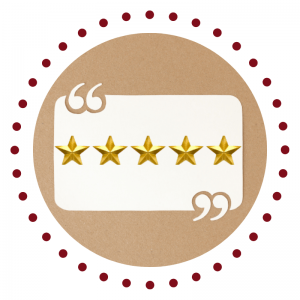
Like the Show? Please Leave a Review
If you like the show, it would mean the world to her if you left a quick review.
Your word is golden, so a HUGE thank you in advance!

#KeepInTouch
via our podcast alerts
Subscribe now to discover why thousands of monthly listeners who are passionate about doing their best work prioritize time each week to listen to the Blended Workforces @Work podcast.
#AboutSDL
#WhereToFindUs
MAILING
4480-H South Cobb Drive
PMB 219
Smyrna, GA 30080
PHYSICAL
2121 NewMarket Parkway
Ste. 108
Marietta, GA 30067
#ContactOptions
Customer Service Email:
service@shockinglydifferent.com
Call or Text:
770-384-1103
#Office Hours
MON-FRI
8:30 AM – 6:30 PM
Weekends By Appointment

